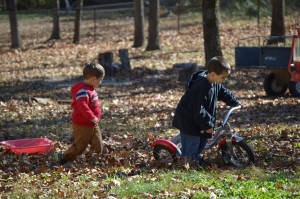No one said that parenting would be easy—and it’s not. From taking care of your child’s basic needs to focusing on his or her cognitive development, it can be a full-time job. But an equally critical aspect of long-term growth and wellness for children is their ability to build strong social and emotional tools. Skills like cooperation, the ability to listen to instructions, confidence, attentiveness, concentrating on tasks – these are just as important to a child’s success as knowing his or her ABCs.
As a parent or primary caregiver, you will have the first—and most profound—impact on how well your child adopts these skills. It’s a huge responsibility, but certainly not an insurmountable one.
Why Social and Emotional Skills are So Important
Social and emotional readiness can have a direct influence on your child’s ability to learn. Many studies suggest a link between early academic success and emotional and social acumen. Essentially, if your child has trouble adapting to the social atmosphere of school, he or she will be less able to focus on the act of academic learning.
Helping Children Develop Social and Emotional Skills
Thankfully, parents and caregivers can cultivate social and emotional acuity in children without taking away from their academic preparation. In fact, the two go hand in hand.
The key is to get an early start. The foundation for emotional and social readiness is a caring, persistent relationship with a parent or primary caregiver during a child’s first year of life. According to the Early Childhood Council, children who don’t form these secure attachments as infants are at a greater risk for behavioral problems later on, particularly aggressive behavior.
One of the most important things you can do to foster positive emotional and social growth is to regularly interact with your children and create opportunities for them to socialize with other kids. Independent play is important, but it’s also important to play with them. This is where they learn to take turns, share, look at the person who’s speaking to them, apologize and ask for things politely.
And while they can learn many of these social norms from you, it’s also important to give them opportunities to interact with their peers. Attending neighborhood play groups, arranging time with the children of friends and family who are close in age, and enrolling them in preschool can all teach them about acceptable group behavior.
Children grow up quickly, and their formal education begins sooner than most parents anticipate. Make sure they’re ready by equipping them with the social and emotional skills they need to succeed.
David Lowenstein, Ph.D. is a psychologist and the clinical director of Lowenstein & Associates, Inc. in Columbus, Ohio. In addition to providing therapeutic services to individuals and families, he offers training and consultation to numerous associations, schools and agencies around the country. Additionally, he is a frequent radio and TV guest and a resource and contributing writer for numerous newspapers and magazines nationwide. Contact Dr. David Lowenstein at 691 South Fifth Street Columbus, OH 43206 or by phone at 614.443.6155 or 614.444.0432.


